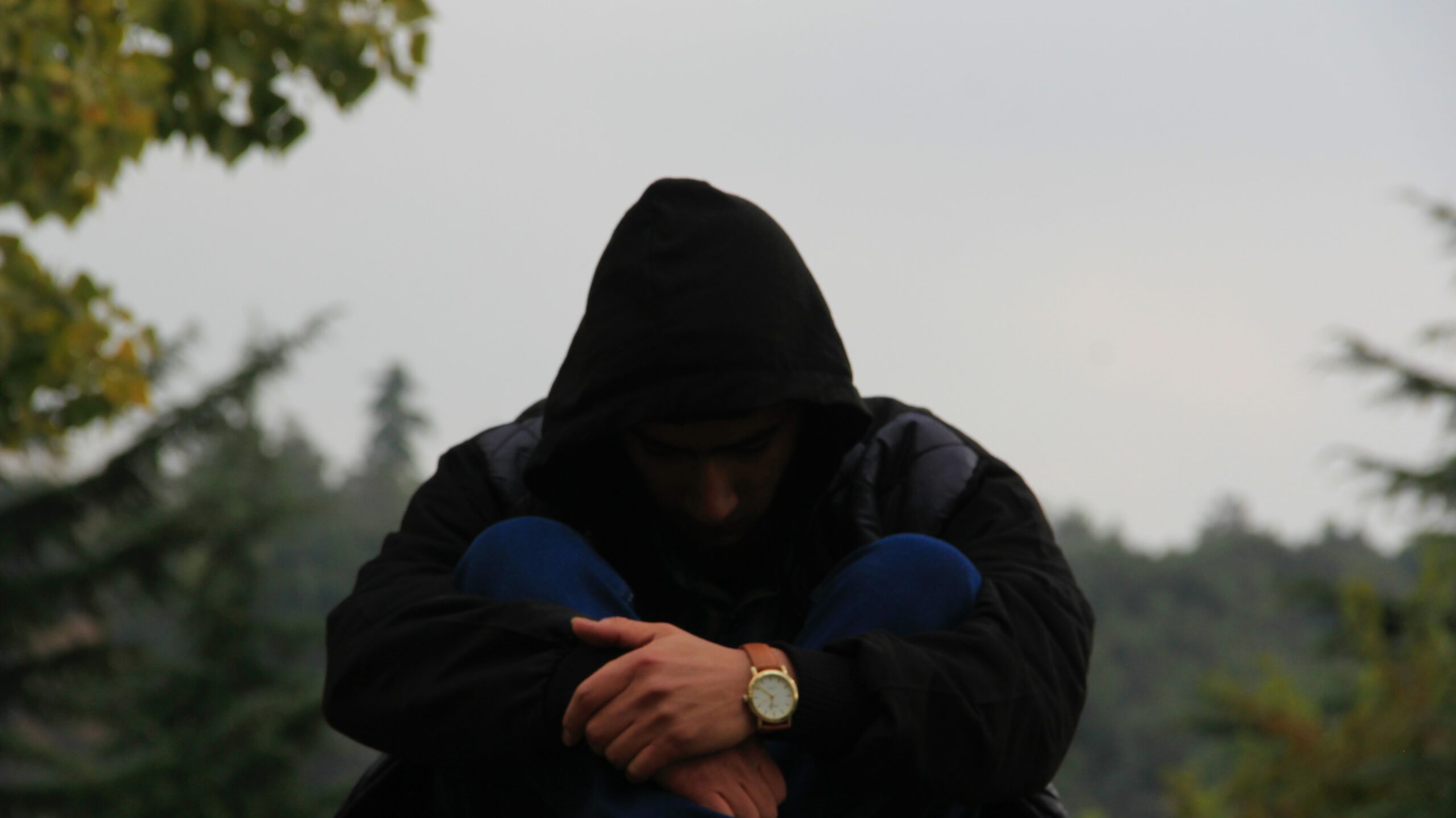Navigating the realm of relationships is a lot like setting out on a grand expedition. Sometimes, the path is illuminated with golden sunsets, filled with shared laughter and memories that make our hearts swell. At other times, we encounter detours, unexpected bends in the road that lead us away from our shared journey.
While breakups might initially feel like being stranded in unknown territory, feelings in a breakup offer a unique chance to understand ourselves and our emotions better. It’s an invitation to tune in, to listen to the soft murmurs and loud roars of our relationship emotions.
As we delve deeper into this landscape, we’ll explore the intricacies of these emotions, the role of emotional intelligence, and how, with a little patience and insight, every detour can lead to a beautiful vista of self-discovery and growth.
Table of Contents
The Symphony of Relationship Emotions
Relationships are, at their core, a deeply emotional experience. When they end, it’s no surprise that a cascade of feelings often follows. From the pang of loss to moments of unexpected nostalgia, to fleeting flashes of relief and dashes of hope, the post-breakup period is a veritable mix of emotions.
Each person’s experience is as unique as their own fingerprint, yet there are common threads that many of us share.
It’s essential to recognize that these emotions, no matter how tumultuous, are a natural part of the healing process. They are signposts, indicating where we might need a little more self-care or reflection.
Some days might be dominated by sadness, making even simple tasks feel like mountain climbs. On other days, anger might take the driver’s seat, urging us to question everything. And then there are moments, often catching us off-guard, when acceptance peeks through, hinting at the healing to come.
However, while it’s crucial to acknowledge and understand these emotions, getting swept away in their current isn’t the goal. By giving ourselves the space to feel, while also employing tools and strategies to process these feelings, we can navigate this phase with more clarity and resilience.
After all, emotions are not just reactions; they’re also valuable messengers, conveying insights about our needs, desires, and boundaries.
As we dive deeper into the world of post-breakup emotions, it’s comforting to remember that you’re not alone on this journey. As I’ve been navigating my own breakup, I’ve had to heavily lean on my family and closest friends. I didn’t realize just how complex feelings in a breakup can be.
By understanding and harnessing our emotions, we not only heal but also gather wisdom and strength for future relationships and personal growth.

The Pre-Breakup Emotional Build-Up
Breakups, as sudden as they might sometimes seem, rarely materialize out of thin air. In many cases, there’s a gradual buildup of emotions, an accumulation of feelings and concerns that precede the actual decision to part ways.
It’s like noticing the sky darkening and the air getting cooler before a rainstorm, even if we don’t always predict the intensity of the downpour.
Often, these initial feelings manifest as subtle discomforts in the relationship. There might be recurring disagreements that seem to loop without resolution or moments of disconnection that grow more frequent.
These are signs, signals really, asking us to pause and assess. It’s our internal alarm system nudging us, saying, “Hey, something’s off here. What’s going on?”
Then there’s the internal tug-of-war, a balancing act of denial and intuition. One part of us might be sounding the alarm bells, while another part fervently hopes things will resolve on their own. This dichotomy is a common human experience; after all, who doesn’t hope for the best when invested in a relationship?
Facing these emotions and acknowledging them is not an admission of failure or defeat. Instead, it’s a testament to one’s emotional awareness.
Recognizing that something is amiss is the first step toward understanding what’s truly going on, even if it leads to tough decisions down the line.
As we delve into these pre-breakup emotions, the key takeaway is to trust oneself. While it’s essential to hope and strive for the best, it’s equally vital to listen to our feelings and intuition. They’re often our first guides, pointing out the paths we might need to tread, even if they’re challenging.
For a few months before me and my partner decided to breakup, I felt a lot of discomfort and restlessness within myself. I knew there were things we needed to talk about, but neither of us wanted to be the first to bring up the conversation.
Once we began having the difficult-and-long-awaited conversations, and began speaking of a potential breakup, the idea of it seemed unbearable. However, deep within myself I knew, without a shadow of a doubt, that this was the best decision for the both of us.
The tug of war between denial and intuition is excruciating. However, it’s up to us to decide what we choose. Do we stay for the sake of fear of letting go or do we make the decision to separate because our intuition might be telling us that this is the best course of action?
Emotional Intelligence: The Unsung Hero
Emotional intelligence is one of those terms we’ve likely heard, maybe even thrown around in conversation, but its depth and significance, especially in the realm of breakups, cannot be overstated.
At its core, emotional intelligence is our ability to recognize, understand, and manage our own emotions while also tuning into and responding compassionately to the emotions of others. It’s like having an emotional compass, guiding us through the dense forest of feelings and helping us navigate relationships with grace and understanding.
In the context of breakups, emotional intelligence shines particularly bright. It aids in decoding the complex mix of emotions we experience, from the pre-breakup jitters to post-breakup reflections.
Rather than getting overwhelmed or lost in the intensity of feelings, those with honed emotional intelligence can identify and label their emotions, providing clarity and perspective. It’s akin to being able to read the emotional weather forecast, preparing and equipping oneself for the emotional climates ahead.
You might also enjoy reading “Finding Strength In Letting Go: Overcoming Challenges And Growing”
Moreover, emotional intelligence doesn’t just assist us in understanding our own feelings; it’s instrumental in comprehending the emotions of our former partner. Breakups, after all, are a two-way street, and being able to empathize and communicate effectively can ease the process for both parties involved.
Cultivating emotional intelligence isn’t just a post-breakup endeavor. It’s a lifelong journey that enriches not just romantic relationships, but all interpersonal interactions.
Whether it’s through self-reflection, active listening, or even seeking professional guidance, enhancing our emotional intelligence is akin to sharpening our internal tools, ensuring we’re equipped to handle the ebb and flow of feelings in all life’s phases.
So, as we spotlight emotional intelligence, it’s worth celebrating its role in our lives. It’s the unsung hero, quietly working behind the scenes, guiding us toward deeper understanding, compassion, and resilience.

The Immediate Aftermath: The Emotional Whirlwind
The moments following a breakup can feel overwhelming, akin to standing in the center of a bustling city square with noises, lights, and movements coming from all directions. Emotions surge, memories flash, and the mind races as it grapples with the newfound reality. This immediate aftermath is a pivotal time, one where feelings are raw and reactions are instinctual.
It’s common to cycle through a range of emotions post-breakup.
- There’s the profound sense of loss, almost as if a piece of your world has shifted.
- Then there’s the replay – mentally going over conversations, shared moments, and what-ifs.
- For some, there’s also a strange sense of freedom, a window of possibility opening up amidst the pain.
It’s essential to understand that this flurry of emotions, no matter how contradictory they may seem, are entirely natural. They’re a testament to the depth and authenticity of the relationship that once was.
As I’ve been navigating my first month post-breakup, I’ve been taken aback by the intensity and range of my emotions. A few days ago, I had a really busy day at work and didn’t have time to check-in with myself and my feelings.
The minute I left the office and was by myself, a huge wave of sadness washed over me. I felt such deep sense of loss and grief. I walked over to a bench by a canal, sat there, and sobbed for a good 15 minutes whilst a friend on the phone soothed me.
That same evening, after a meditation, I cried myself to sleep. These feelings are incredibly intense and uncomfortable. Yet, it’s important to feel through them so we can heal through them.
During this period, self-care becomes paramount. It’s important to grant yourself the permission to feel and process. Whether it’s journaling, seeking solace in nature, or simply taking a break from daily routines to reflect and heal, finding what soothes your heart and mind is crucial.
Moreover, while introspection is vital, remember that you don’t have to go through this phase alone. Leaning on friends, family, or support groups can provide comfort and perspective. They offer a grounding presence, a reminder that even in moments of profound change, there are constants that remain.
In sum, the immediate aftermath of a breakup, while undeniably challenging, is also an opportunity. It’s a time to reconnect with oneself, to understand personal emotions and needs, and to lay the foundation for the healing and growth that lies ahead.
While the journey may seem daunting, every step, every insight, brings us closer to a place of understanding and peace.
The Grieving Process: It’s Not Just About Loss
Breakups, in many ways, mirror the intricacies of the grieving process. Just as we mourn the loss of a loved one, the end of a relationship brings with it a sense of loss, not just of the partner but of shared dreams, routines, and a collective identity.
However, while loss is undeniably a part of this journey, it’s crucial to remember that grief, in the context of a breakup, isn’t solely about what’s gone. It’s also about understanding, acceptance, and eventually, finding a path forward.
Initially, it’s not uncommon to oscillate between feelings of denial, anger, and sadness. Denial acts as a protective cushion, buffering the stark reality of the situation. Anger, on the other hand, might be directed towards oneself, the former partner, or even external circumstances. It’s a way of grappling with the “why” of it all. Then, of course, there’s the profound sadness, a natural response to the void that often follows a relationship’s end.
Yet, as time progresses, this grief gradually evolves. Bargaining might come into play, where we mentally negotiate scenarios that could have saved the relationship. However, as we process our feelings in a breakup, a new emotion begins to emerge: acceptance.
This doesn’t mean the hurt has vanished, but there’s a growing understanding of the situation, a recognition that the breakup, no matter how painful, was a part of our journey.
This acceptance becomes the bridge to rediscovery. It’s the phase where we begin to reconnect with ourselves, independent of the relationship. We start to find joy in the things we love, set new goals, and even dream of future connections.
Grief, in this sense, isn’t a linear process. It’s a series of waves, sometimes calm, sometimes turbulent, but each one carrying lessons, insights, and opportunities for personal growth.
In navigating the grieving process of a breakup, patience and compassion are paramount. It’s about honoring each emotion, giving oneself the time to heal, and recognizing that with every sunset, there’s the promise of a new dawn.
And while the journey through grief can be winding, it’s also an essential path to healing, understanding, and future growth.

Rediscovery: Embracing the Emotional Renaissance
After the storm of a breakup and the ensuing emotional rollercoaster, there’s often a quiet yet profound phase that follows: rediscovery. Think of it as an artist standing before a blank canvas, with the freedom to create anew.
It’s the time where we begin to reacquaint ourselves with who we are, separate from the identity of the relationship, and it’s filled with possibilities.
Firstly, rediscovery is about embracing personal passions and pursuits that might have taken a backseat. It might be as simple as picking up a long-forgotten hobby, joining a community group, or exploring new interests. These activities, while seemingly straightforward, act as building blocks, helping to reinforce a sense of self-worth and individuality.
Additionally, this period offers an excellent opportunity for introspection. It’s a chance to reflect on personal goals, aspirations, and values. What do we seek in our future relationships? What have we learned about our boundaries, our needs, and our desires?
Taking the time to ponder these questions not only aids in healing but also lays a solid foundation for future connections.
However, rediscovery isn’t just about introspection and solo pursuits. It’s also about expanding one’s horizons, connecting with new people, and building fresh relationships.
These interactions, whether they’re deep friendships or fleeting acquaintances, enrich our lives, offering new perspectives, stories, and experiences.
In essence, the phase of rediscovery is the emotional renaissance after the breakup. It’s a period of growth, exploration, and renewal. By embracing this journey with an open heart and mind, we not only heal but also emerge stronger, wiser, and more in tune with ourselves.
Navigating Social Emotions: Friends, Family, and the “What Now?”
Breakups don’t just influence our internal emotional landscape; they ripple outwards, affecting our social circles and interactions. While the relationship might have been a duo, the connections and stories built around it often involve a wider cast of characters: friends, family, and mutual acquaintances.
Navigating this new social terrain, with its unique set of emotions and challenges, is an integral part of the post-breakup journey.
Firstly, there’s the ever-present question: Who gets the friends? Shared social circles can become tricky territories. Suddenly, casual get-togethers might feel like a game of diplomacy, trying to ensure no toes are stepped on.
It’s essential, during these times, to communicate openly with friends, letting them know your feelings and boundaries. True friends, after all, will understand and support both parties involved.
Then comes family. For many, families become deeply intertwined during a relationship. Post-breakup, it might feel like you’re not just parting ways with your partner, but also with their family, who might have become akin to your own.
It’s natural to grieve these connections. However, focusing on strengthening bonds with your own family and confiding in them can offer solace and understanding.
There’s also the broader social context to consider. Attending events, functions, or even casual outings where mutual acquaintances are present can be a source of anxiety. The “What will people say?” or the “How do I handle the questions?” can loom large. Preparing oneself mentally, having a trusted friend by your side, or even scripting a few responses can help ease the initial awkwardness.
In summary, while the personal emotional journey post-breakup is profound, we can’t ignore the social dimensions. Navigating these waters requires tact, understanding, and a healthy dose of self-care.
Remember, it’s okay to seek spaces that make you feel comfortable and supported. As time progresses, the social landscape, like the emotional one, finds its new equilibrium, leading to renewed connections and brighter horizons.

Emotional Intelligence in Action: Reflect, Understand, Grow
Harnessing the power of emotional intelligence after a breakup is like having a trusty guidebook in a foreign land. It helps in decoding complex feelings, offers insights into personal patterns, and provides a pathway towards healing and growth.
Putting emotional intelligence into action is both an art and a science, where understanding and intuition meet.
To start, reflection is key. Taking moments to introspect, to really dive deep into what you’re feeling, offers invaluable insights. It’s about asking oneself, “Why do I feel this way?” and “What can this emotion teach me?”
This isn’t about overanalyzing or ruminating, but rather seeking clarity. It’s the process of turning inward, listening to the heart, and understanding its language.
My online class “Journaling for Self-Reflection: A 3 Question Practise” can help you reflect on your emotions. Give it a look.
From reflection springs understanding. With the insights gathered, we can start connecting the dots. Maybe we recognize certain triggers that amplify feelings of sadness or patterns in our relationships that need reassessment.
This understanding is like a map, revealing areas of our emotional landscape that we can navigate better in the future.
Growing from these experiences becomes the natural next step. Emotional growth isn’t just about avoiding past mistakes; it’s about evolving our understanding of ourselves and our emotional needs. It’s about setting healthy boundaries, communicating more effectively, and recognizing when we need support or self-care. Each lesson learned, every insight gained, fortifies us for future relationships and challenges.
In essence, emotional intelligence is the compass, guidebook, and trusty travel companion on our post-breakup journey. By actively engaging with it, by reflecting, understanding, and growing, we ensure that every experience, no matter how painful, contributes to our personal evolution.
Moving Forward: Crafting an Emotionally Intelligent Future
The chapters following a breakup, though initially clouded with melancholy, are ripe with potential. As the dust settles and emotions begin to find their balance, a vision of the future emerges.
A future where emotional intelligence doesn’t just play a supporting role but takes center stage, shaping our choices, relationships, and personal narratives.
First and foremost, moving forward is about harnessing the lessons of the past. Each relationship, with its joys and challenges, provides valuable insights. Emotionally intelligent individuals don’t just archive these lessons; they integrate them.
It’s about understanding personal boundaries, recognizing red flags, and more importantly, knowing one’s worth. The clarity that comes from past experiences acts as a beacon, guiding future choices.
Equipped with these insights, the future becomes a canvas of possibilities. Emotionally intelligent individuals foster healthier relationships, not just with potential partners but with everyone around them. They communicate effectively, empathize genuinely, and are attuned to their emotional needs as well as those of others.
Additionally, personal growth isn’t limited to the realm of relationships. An emotionally intelligent future also means setting personal goals, pursuing passions, and building a life that resonates with one’s true self. It’s about creating a harmonious blend of personal and interpersonal fulfillment.
In conclusion, the journey post-breakup, with all its twists and turns, is a transformative one. The path forward, illuminated by emotional intelligence, promises not just recovery but rejuvenation. It’s an invitation to craft a future where emotions are not just felt but understood, respected, and celebrated.

Feelings In a Breakup: Summary
Navigating the myriad of emotions that envelop us post-breakup can often feel like traversing a labyrinth. However, as we’ve journeyed together through the realms of reflection, understanding, and emotional intelligence, one thing becomes abundantly clear: breakups, as heart-wrenching as they can be, also offer profound opportunities for personal growth and self-discovery.
The heartache, the introspection, the moments of doubt, and the eventual resurgence are all integral facets of the human experience. They remind us of our capacity to feel deeply, to heal, and to emerge even more resilient and self-aware.
By harnessing the insights offered by our emotions, we not only recover but set the stage for richer, more authentic connections in the future.
Moreover, it’s essential to remember that you’re not alone in this journey. Whether it’s the support of friends and family, the shared experiences of countless others, or the wisdom gleaned from articles like this one (wink), there’s a collective reservoir of strength and knowledge to tap into.
In the grand tapestry of life, relationships, with their joys and sorrows, form some of the most vivid threads. They teach us, challenge us, and often shape us in ways we might not immediately recognize.
Closing Thoughts
Thank you for reading this article and in case you are going through a breakup of your own – I wish you lots of strength and patience. In case you’re a bookworm like me, reading “When You’re Ready, This Is How You Heal” might be valuable!
